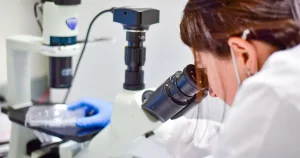Understanding Polycystic Ovary Syndrome (PCOS) and Its Impact
Polycystic Ovary Syndrome (PCOS) is a common hormonal disorder affecting women of reproductive age. Often undiagnosed, it can lead to various health complications if left unmanaged. Let’s delve into what PCOS is, its potential impacts, and ways to address it.
What is Polycystic Ovary Syndrome (PCOS)?
PCOS is a hormonal imbalance that affects the ovaries and ovulation. Women with PCOS may experience:
- Irregular menstrual cycles
- Excess androgens (male hormones)
- Cysts on the ovaries
Potential Health Implications of Undiagnosed PCOS
When PCOS goes undiagnosed and untreated, it can contribute to several serious health problems:
- Infertility: Irregular ovulation can make it difficult to conceive.
- Type 2 Diabetes: PCOS is linked to insulin resistance, increasing the risk of developing diabetes.
- Cardiovascular Issues: Women with PCOS may have a higher risk of heart disease.
- Endometrial Cancer: Irregular periods can thicken the uterine lining, raising the risk of cancer.
- Mental Health: PCOS can also affect the mental wellbeing of women.
Recognizing the Symptoms
Early recognition of PCOS symptoms is crucial for timely diagnosis and management. Common symptoms include:
- Irregular periods or absence of periods
- Excessive hair growth (hirsutism) on the face, chest, or back
- Acne
- Weight gain, particularly around the abdomen
- Thinning hair or male-pattern baldness
- Skin darkening (acanthosis nigricans) in skin creases
Diagnosis and Medical Investigations
If you suspect you might have PCOS, consult a healthcare professional. Diagnosis typically involves:
- A physical examination
- A review of your medical history
- Blood tests to check hormone levels
- Ultrasound to examine the ovaries
Management and Treatment Options
While there’s no cure for PCOS, various treatments can help manage the symptoms and reduce the risk of complications:
- Lifestyle modifications: A healthy diet and regular exercise can improve insulin resistance and promote weight loss.
- Medications: Birth control pills can regulate periods and reduce androgen levels. Other medications can help with insulin resistance or fertility.
Home Remedies and Lifestyle Adjustments
Alongside medical treatments, several home remedies and lifestyle adjustments can support PCOS management:
- A balanced diet rich in whole foods, lean protein, and healthy fats.
- Regular physical activity to maintain a healthy weight and improve insulin sensitivity.
- Stress management techniques such as yoga, meditation, or deep breathing exercises.
Final Overview
PCOS is a complex condition that requires a comprehensive approach to management. Early diagnosis, appropriate medical care, and lifestyle adjustments can help women with PCOS lead healthy and fulfilling lives. If you experience any symptoms of PCOS, seek medical advice for proper evaluation and guidance.




+ There are no comments
Add yours